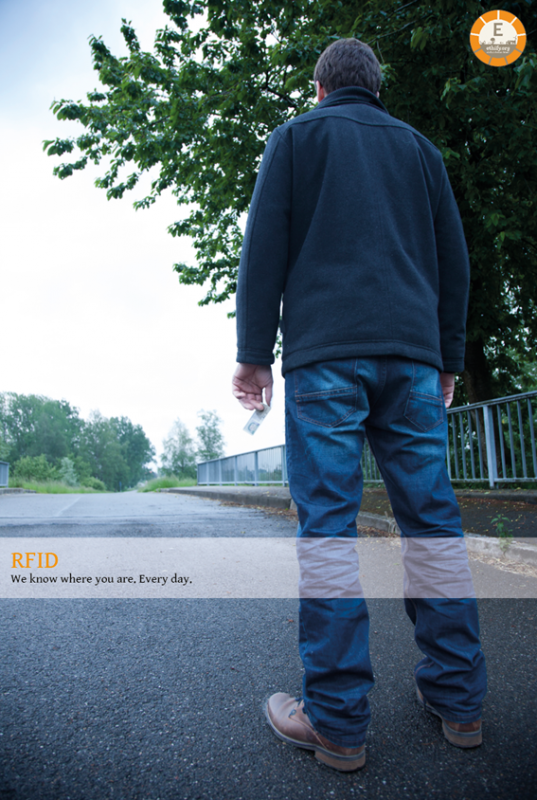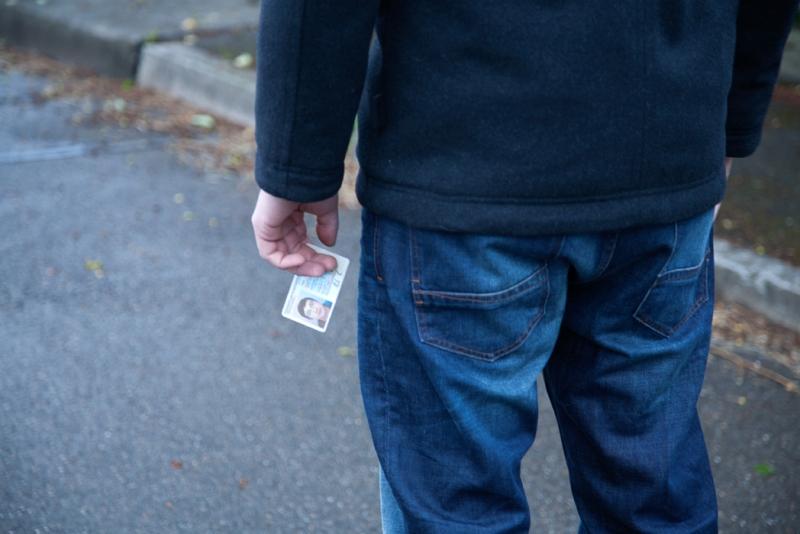Gespeichert von dilemma am


RFID
We know where you are. Every Day.
Introduction/ Questions
How is an RFID chip working? Where are RFID chips integrated? Why is the government affecting a citizens privacy so much? Is everyone automatically a criminal, or why should the state save all the locations? All the stores we visit, what products people buy (and so on)?
Nut Graph
RFID means “radio-frequency identification” and it’s a technology to identify and localize products, animals and human beings. A single RFID chip is not bigger than a rice grain and works with a magnet, that can translate data and information of a product. It’s integrated in almost everything in our daily life: for example cars, clothes, banknotes, library products, pets, drugs packaging and of course: in our identification card.
The government knows where you are, when, and how long you stay there, because of course you have to carry your identification card with you, every day. Also in which stores you buy things, what you buy, how much and so on. They say it’s for “statistics”, to identify people or to hinder criminal actions. But what is when you’re not a criminal at all? Well, you will still be recorded and watched, and that’s not right.
Quote
“A child born today will grow up with no conception of privacy at all. They’ll never know what it means to have a private moment to themselves, an unrecorded, unanalyzed thought.” Edward Snowden
Facts
- An RFID chip is not bigger than a grain of rice
- they are also called “spy chips”
- they are integrated in almost all daily life products
- when you’re not having you’re iD card with you, it’s possible that you have to pay
monetary to the police; or they take you home
- in the USA they are actually thinking about a law, where the citizens should have a RFID chip implanted
- even if you’re not a criminal, you are recorded and watched by your government; they save all data and information about you for “statistics”
Wrap-up
RFID chips do not help US in our daily life, they only help the government to be more powerful over their citizens.
But it’s important to believe that you still can do something against it. You can control your data, pictures, messages, mails, everything you post on the internet, via facebook or other social networks.
You can pay attention to whistleblowers like Edward Snowden, if you are interested. It’s your choice how you care about your data and keep up your privacy.
Olivia Kammerlander


